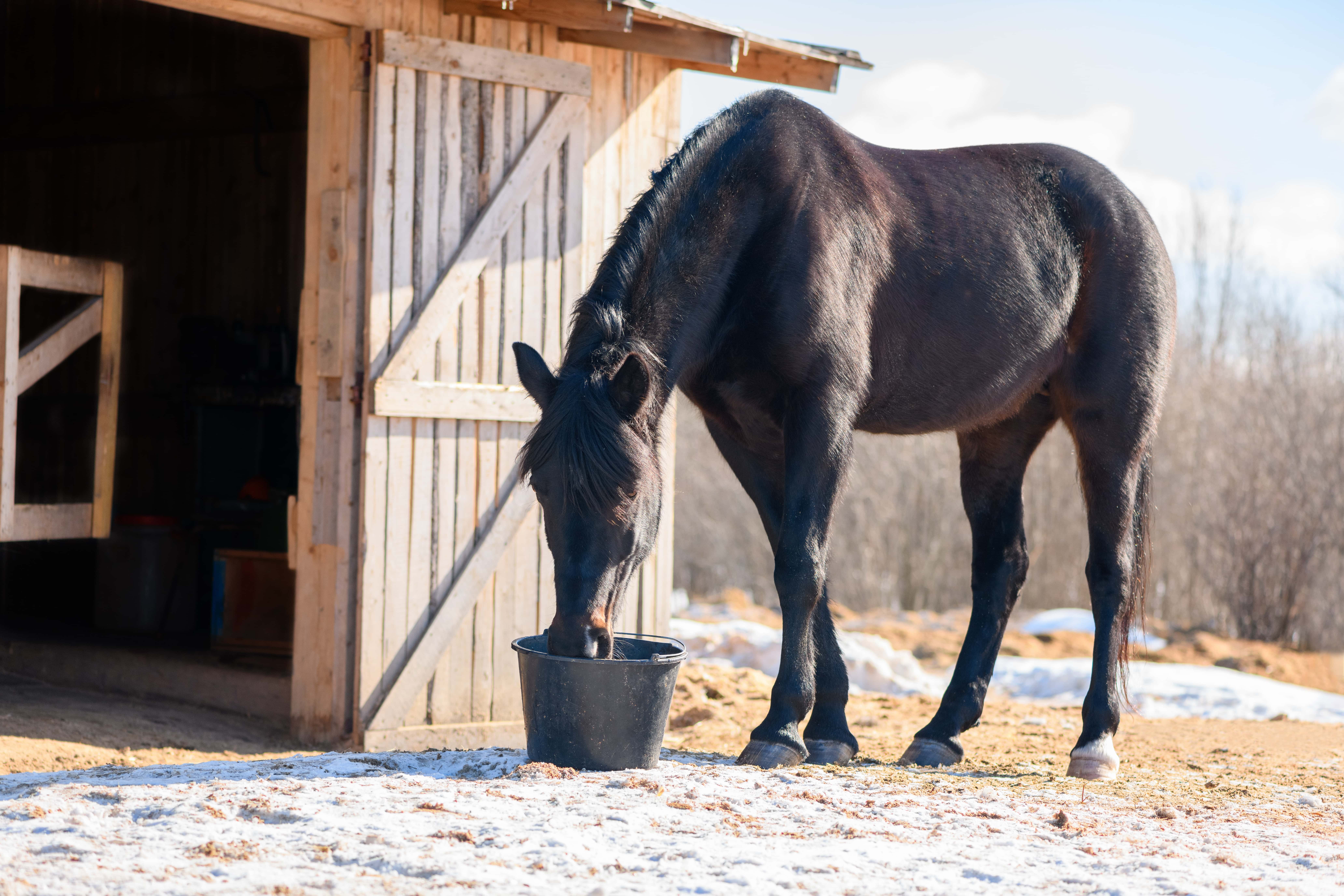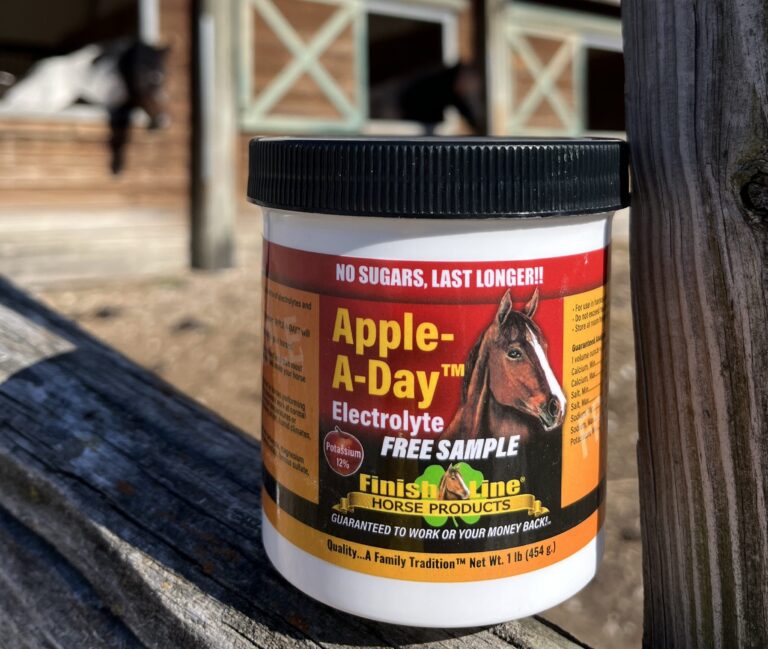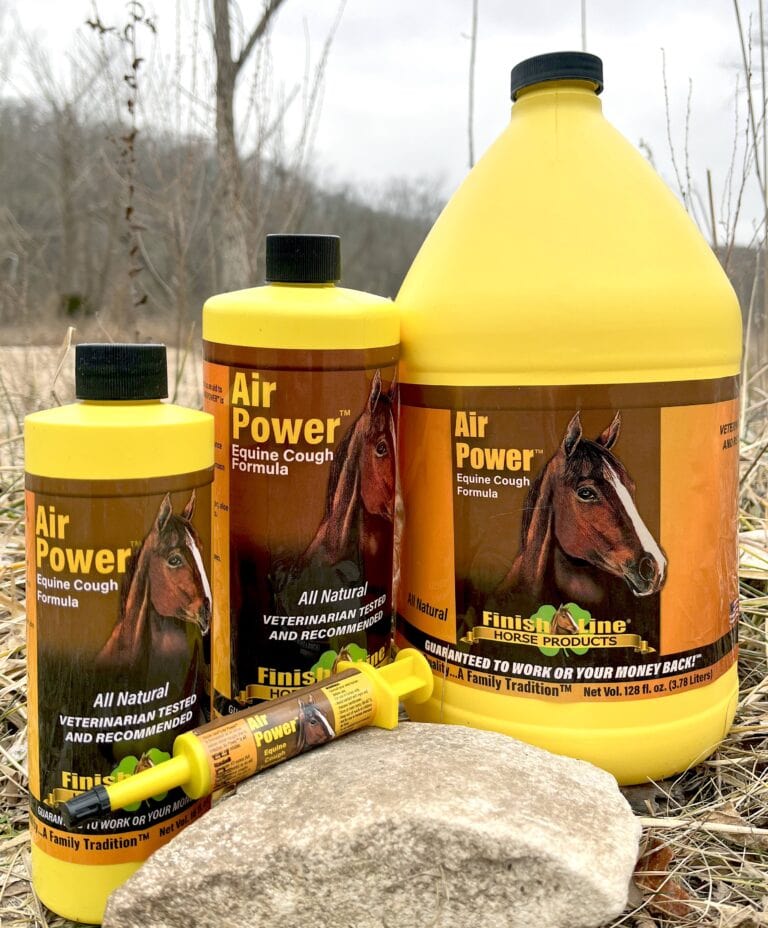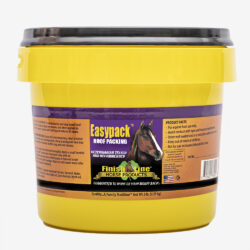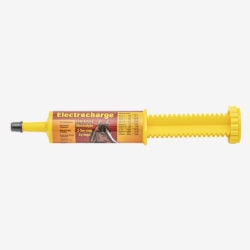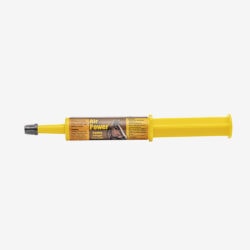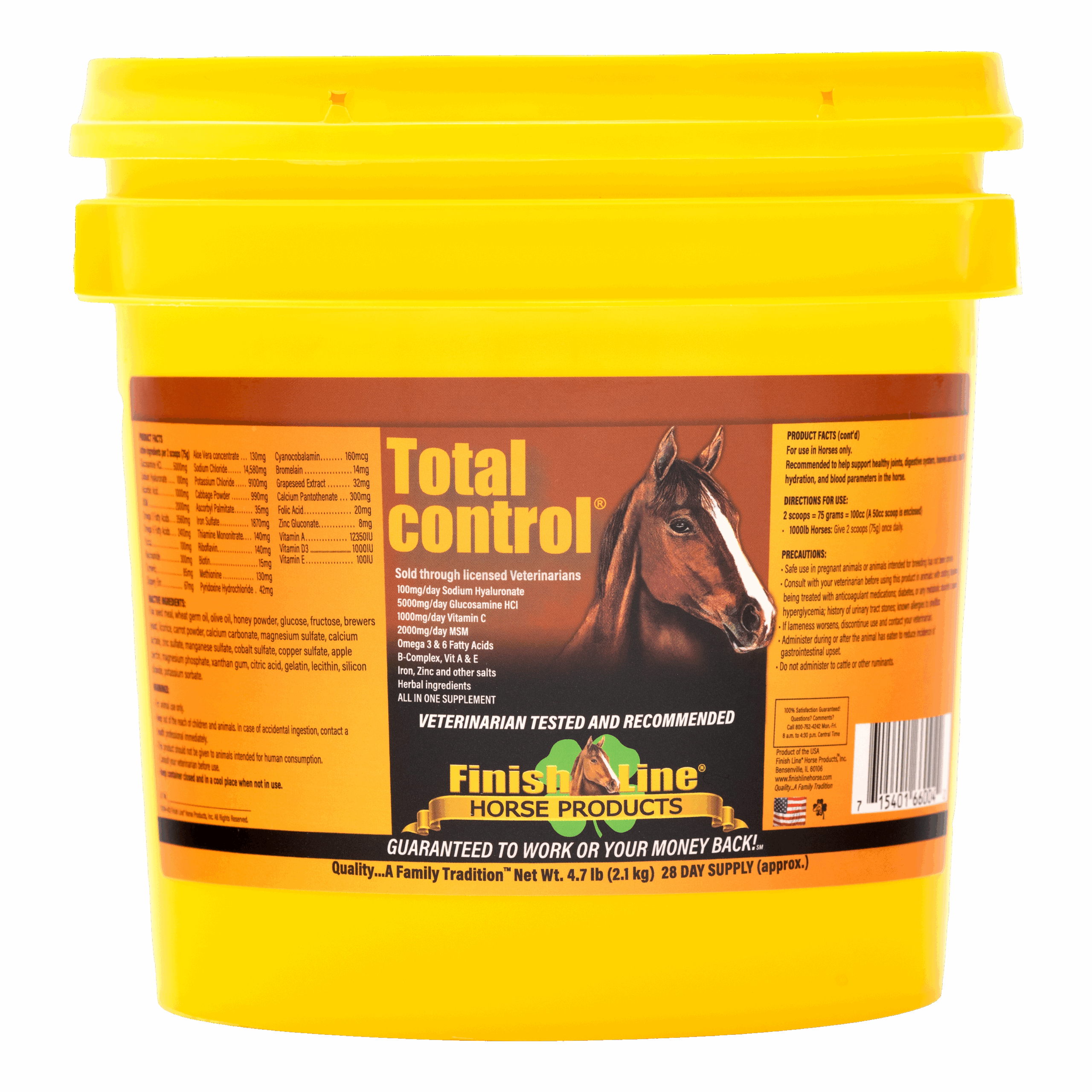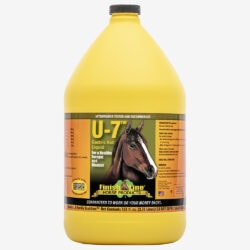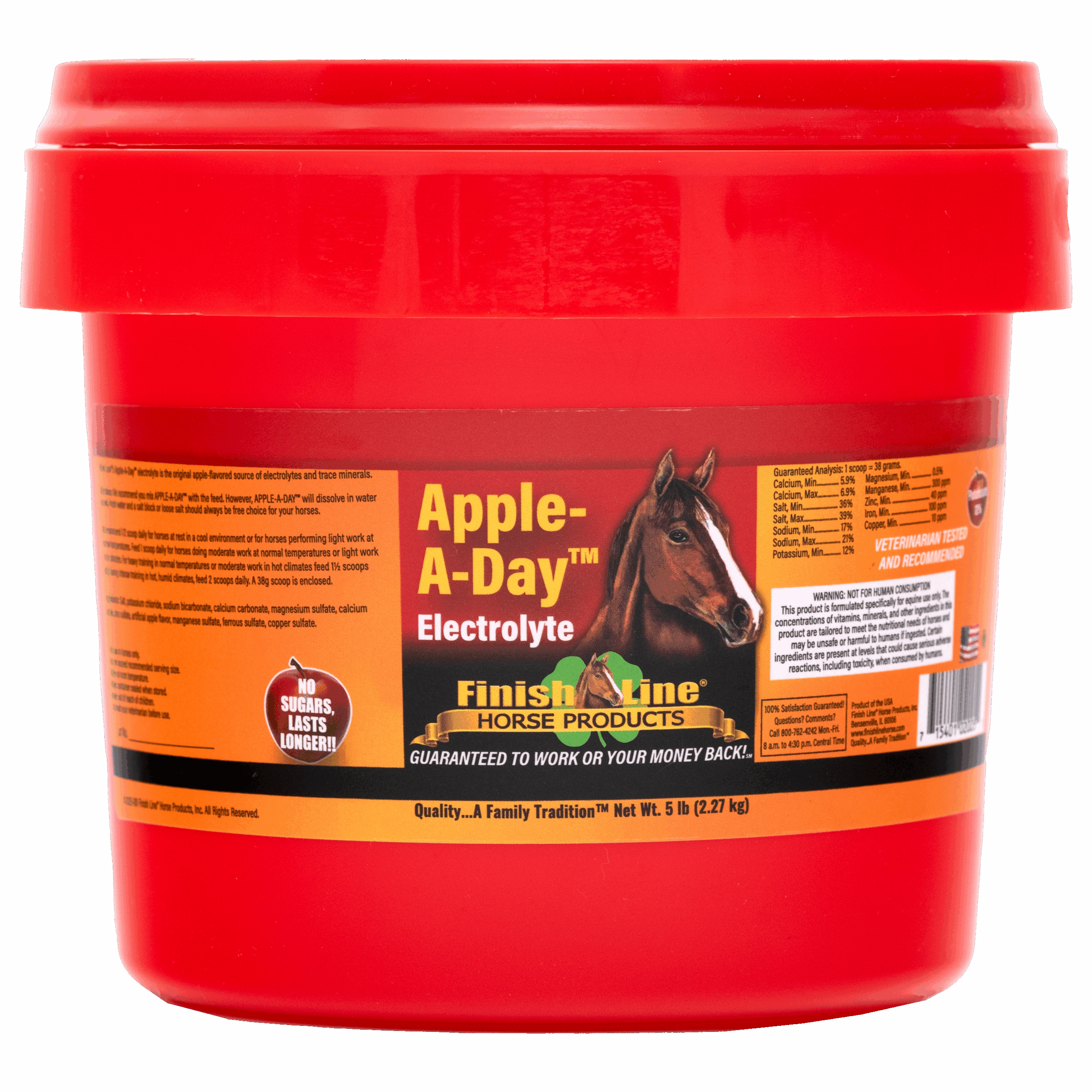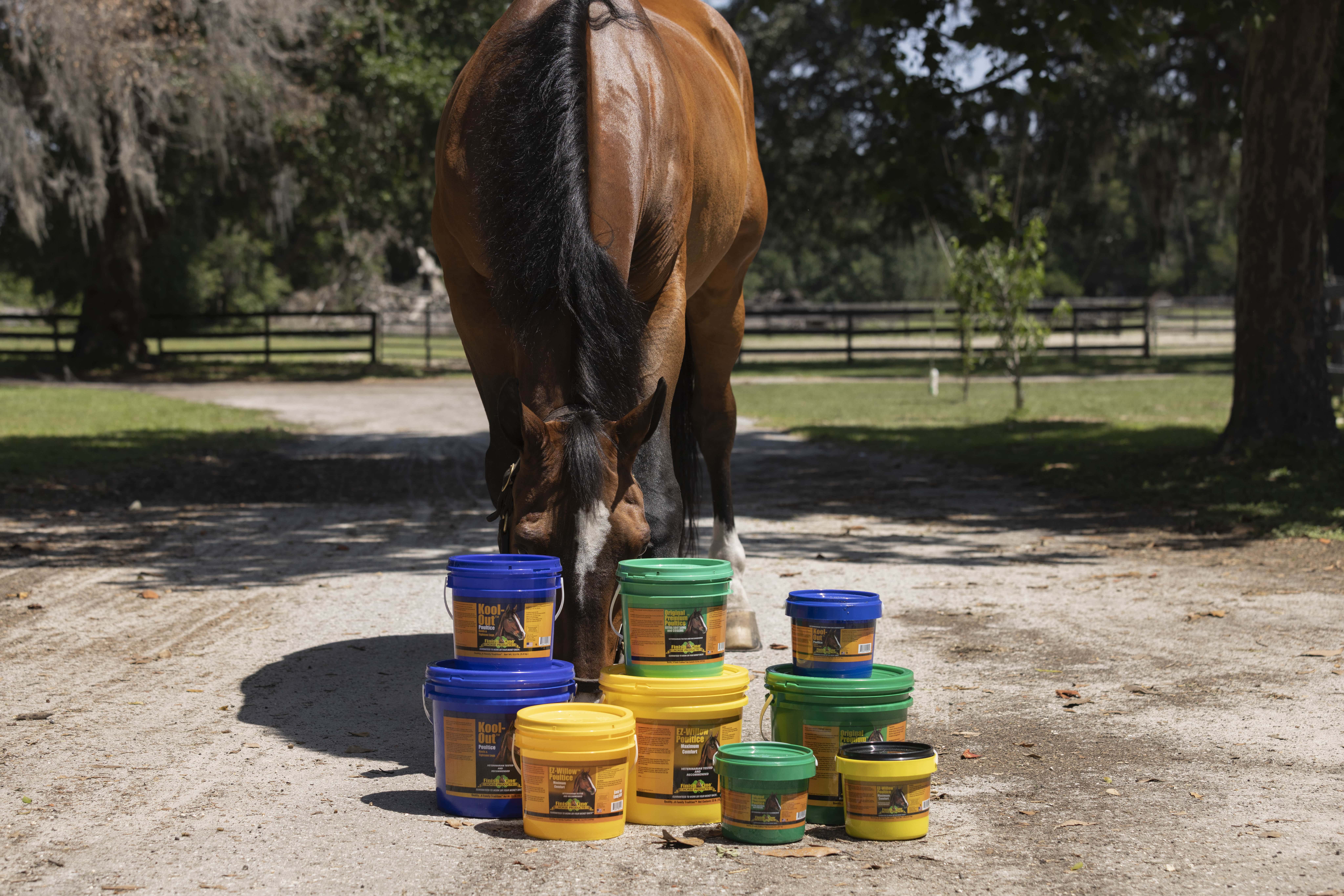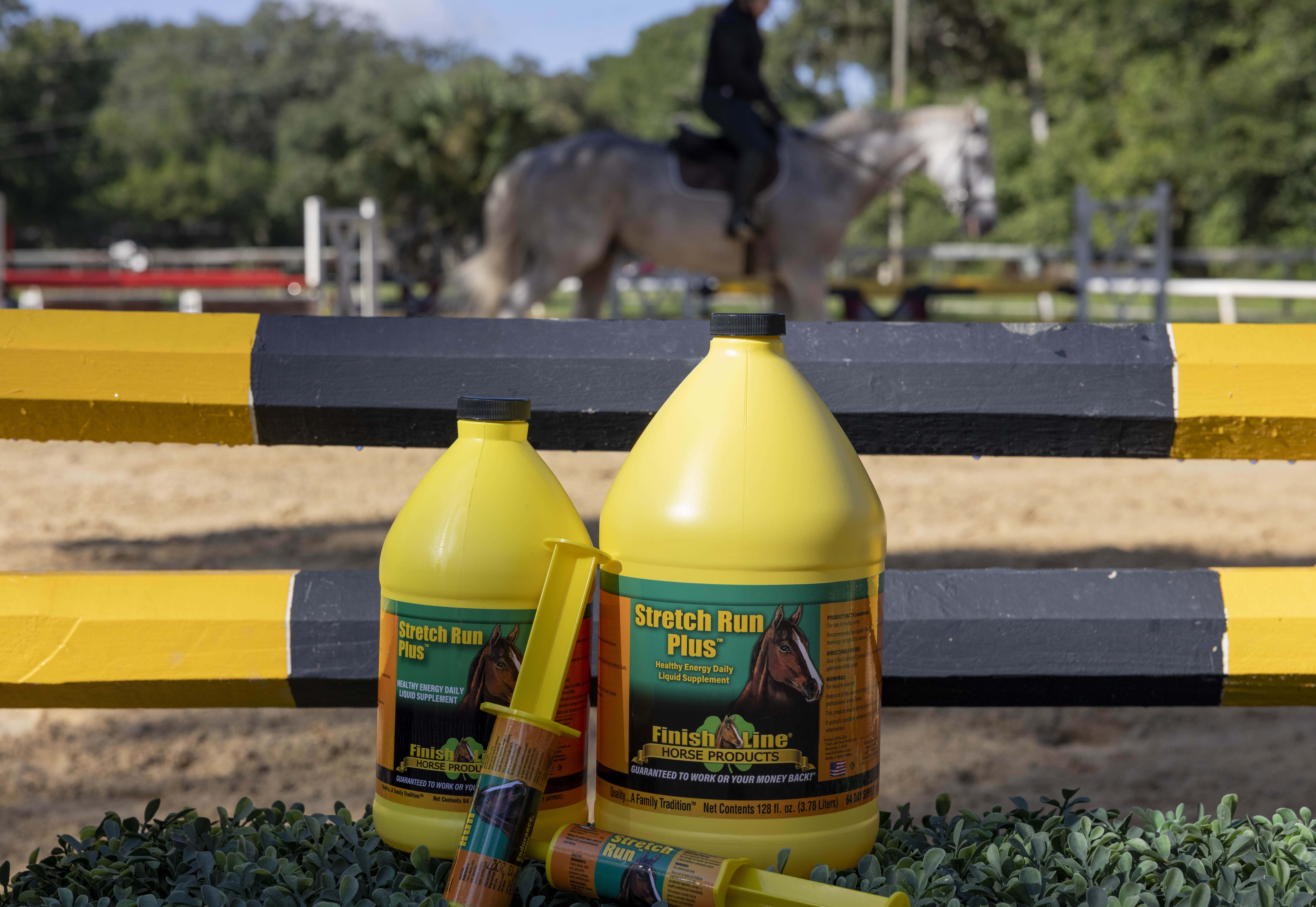Winter Joint Care for Horses
One of the easiest, albeit sometimes overlooked, ways to help keep your horses’ hooves strong is by feeding supplements that support overall hoof health.
Biotin is a proven ingredient that helps increase hoof wall growth and quality. Studies have shown having adequate levels of biotin in a horse’s diet will support strong hooves and could even help repair brittle or cracking hooves. The more often a horse can replace and grow out a hoof, the healthier the hoof will be.
Biotin is one of the most important ingredients found in Finish Line’s Feet First® Coat 2nd supplement. Along with Biotin, Feet First Coat 2nd also contains flaxseed, natural essential fatty acids, methionine, zinc, vitamins A, E, C, and other essential ingredients for hoof health.
While many hoof supplements contain biotin and other similar hoof health ingredients, Feet First Coat 2nd is unique because it also contains fatty acids which are typically missing in other products.
Many of the ingredients in Feet First Coat 2nd, such as the fatty acids mentioned above, are not only helpful for keeping a horse’s hooves strong and healthy but have the added benefit of helping with overall healthy skin and coat.
An easy way to be sure your horse is not only getting a supplement to support hoof health but also a wide variety of other essential vitamins and nutrients they need to perform their best, is by adding a multi-purpose daily supplement, like Total Control®, to your horse’s health regime.
Not only does Total Control® contain the full daily dose of Feet First® Coat 2nd, but it also combines the full doses of Finish Line’s four other best-selling products: Apple-A-Day™ electrolytes, Iron Power® for healthy blood counts, Fluid Action® HA for joint support, and U-7™ Gastric Aid for digestive support.
A Case of the Winter Horse Coughs
Wintertime is when we tend to hear our horses coughing more often.
While a horse’s cough could be caused by several reasons, a few reasons could be due to irritating allergens from spending more time inside. Things like poor ventilation, riding in dry dusty indoor arenas, flip-flopping weather, and more exposure to airborne debris and mold found in shavings are usually to blame for many minor winter coughs. Equine asthma, which can be made worse by indoor allergens, could also be the culprit.
Air Power is an all-natural oral syrup featuring ingredients like menthol, which has a cooling effect that helps relieve irritation and coughing, as well as Eucalyptus which is a known expectorant that loosens phlegm in the respiratory tract.
This equine allergy relief formula promotes healthy breathing overall and suppresses coughing, so your horse is more comfortable. Typically just one dose will keep a horse from coughing all day long. It is even safe for use prior to showing or racing.





